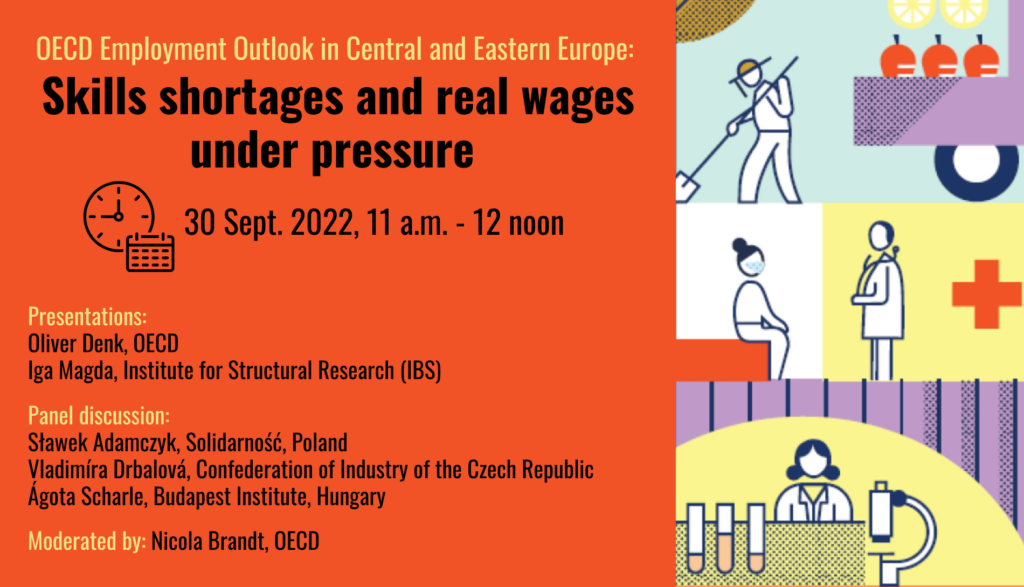As real wages are under pressure due to rising inflation, many employers struggle even more than before the pandemic to fill open positions, particularly in low-paying service jobs. An essential factor is reduced migration compared to pre-pandemic levels. Meanwhile, a new OECD analysis shows that a considerable part of wage inequality comes from firms’ ability to set different wages for similarly qualified workers. Promoting firms’ productivity and worker mobility while reforming wage setting institutions can reduce wage inequality and strengthen economic growth. The recently released OECD Employment Outlook also shows that well-designed reductions in working hours with full wage compensation can benefit welfare and employment.

The panel will discuss current labour market trends in Central and Eastern European countries and which policies can help address labour and skills shortages while providing workers with good working conditions in a challenging context.
Presentations:
Oliver Denk, OECD
Iga Magda, Institute for Structural Research (IBS)
Panel discussion:
Moderated by: Nicola Brandt, OECD
Sławomir Adamczyk, Solidarność, Poland
Vladimíra Drbalová, Confederation of Industry of the Czech Republic
Ágota Scharle, Budapest Institute, Hungary
The event language will be English.
We will connect online via Zoom.
Please register for this event using the registration form
We look forward to seeing you there.

